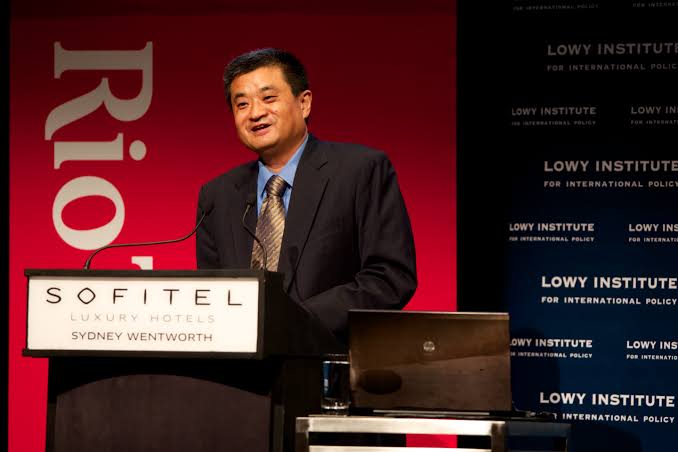Lowy Institute seems to be quite low in its Computation Index

This August 2020 file photo shows Tokyo’s Marunouchi business district.(Kyodo)
The Asian Power Index 2024 as worked out by Lowy Institute after collection and computing data for six years, is certainly very clear on one aspect that is the Computing Ability of this Institute requires urgent up gradations.
For this they need to approach a few of Indian Establishments. The Thinking of this THINK TANK from Australia is certainly skewed, though it does not matter to any one in the Indo Pacific be it China, Japan, the ASEAN Countries or India which the whole world is already acknowledging as a major Power along with USA, Russia and China.
As per Lowy, Japan has slipped to fourth place in a ranking of the most powerful and influential nations in the Asia-Pacific region compiled by this Australian think tank, falling behind fast-growing India due to Tokyo’s prolonged economic stagnation.
In the Asia Power Index’s 2024 edition, recently released by the Lowy Institute, Japan scored 38.9 points out of 100, up 1.6 points from a year ago.
While as per them India rises by just by 2.8 points to 39.1 points to third place, with China “ Way ahead “ at second place with 72.7. Though as far as India is concerned this gives no advantage or additional Power to China.
Between Madagascar and Sunda Strait, who is who is known to all !!Though the United States led at 81.7 points, this too requires are calculation.
The analysis evaluates the comprehensive power of 27 countries and territories in the region, using a weighted average across eight measures such as military capability, economic resources, diplomatic influence and cultural influence, which are calculated by 131 indicators.
These indicators all 131 of them certainly needs to be checked in detail and not just taken at face value !!!
It was the first time for Japan, which has been long suffering from a low birthrate and aging population, to give up third position since the Sydney-based independent organization began publishing the annual assessment in 2018.
Tokyo lost 1.4 points and 4.2 points in the categories of “economic capability” and “economic relationships,” respectively, as the nation’s technological advantage “has eroded sharply in the face of competition” with South Korea, China and Taiwan, the report said.
The trend has “redirected foreign investment away from the Japanese technology sector” and “contributed to Japan’s declining productivity,” it said.
Meanwhile, Japan saw a 13.1 point rise in “defense networks,” with the report citing Tokyo’s 2022 pledge to boost defense outlays to 2 percent of its gross domestic product in five years and its holding of “most combined trainings with non-allied countries” from 2022 through 2023.”
Japan is changing from an economic and cultural powerhouse to one much more active in defence and security cooperation,” the institute said.
India gained 8.2 points in “future resources,” as the country’s youthful population may well deliver a “demographic dividend” over the decades ahead, it said.
The term refers to economic growth seen when a country’s working population grows faster than its overall population.
India’s 2.8 point advance in the total score was the second largest after the 2.9 point lift of Indonesia, which ranked ninth with 22.3 points.
The other top-10 rankers are Australia at 31.9, Russia at 31.1, South Korea at 31.0, Singapore at 26.4 and Thailand at 19.8.



